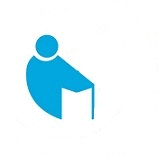natural therapy
What is physiotherapy?
Physiotherapy is a healthcare profession that assesses, diagnoses, treats, and works to prevent disease and disability through physical means. Physiotherapists are experts in movement and function who work in partnership with their patients, assisting them to overcome movement disorders, which may have been present from birth, acquired through accident or injury, or are the result of ageing or life-changing events.
Physiotherapy can help recover from injury, reduce pain and stiffness, and increase mobility. A physiotherapist can also help you prevent further injury by listening to your needs and working with you to plan the most appropriate treatment for your condition, including setting goals and treatment outcomes.
What sort of treatment do physiotherapists use?
Physiotherapists are trained to assess your condition, diagnose the problem, and help you understand what’s wrong. Your treatment plan will take into account your lifestyle, activities, and general health.
The following are common treatment methods physiotherapists may use:
- exercise programs to improve mobility and strengthen muscles
- joint manipulation and mobilisation to reduce pain and stiffness
- muscle re-education to improve control
- airway clearance techniques and breathing exercises
- soft tissue mobilisation (massage)
- acupuncture
- hydrotherapy
- assistance with use of aids, splints, crutches, walking sticks and wheelchairs.
Specifically, physiotherapists improve clients’ quality of life by:
- Promoting optimal mobility, physical activity and overall health and wellness;
- Preventing disease, injury, and disability;
- Managing acute and chronic conditions, activity limitations, and participation restrictions;
- Improving and maintaining optimal functional independence and physical performance;
- Rehabilitating injury and the effects of disease or disability with therapeutic exercise programs and other interventions; and
- Educating and planning maintenance and support programs to prevent re-occurrence, re-injury or functional decline.
Physiotherapy is anchored in movement sciences and aims to enhance or restore function of multiple body systems. The profession is committed to health, lifestyle and quality of life. This holistic approach incorporates a broad range of physical and physiological therapeutic interventions and aids.
Physiotherapy Helps in Many Ways
Many people think physiotherapy is only used for musculoskeletal (neck and back conditions). But the profession actually provides both preventative and rehabilitation treatment for an array of mobility issues, injuries and/or diseases. The following list is only some of the many different areas in which physiotherapy can help:
- Arthritis
- Asthma
- Back pain
- Cancer
- Cardiovascular Conditions (including post heart attack, Chronic Obstructive Pulmonary Disease (COPD), and pneumonia)
- Cerebral palsy
- Chronic Pain
- Concussions
- Critical Care
- Dementia
- Developmental Delay & An Array of Paediatric Conditions
- Diabetes
- Falls & Fractures
- High Blood Pressure
- Incontinence
- Multiple Sclerosis
- Neck Pain
- Neurological Conditions (stroke, concussions, spinal injury, Parkinson’s disease),
- Occupational Health
- Oncology-Related Conditions (including lymphedema)
- Osteoporosis
- Pregnancy-related Incontinence
- Rehabilitation
- Vestibular Disorders (dizziness)
